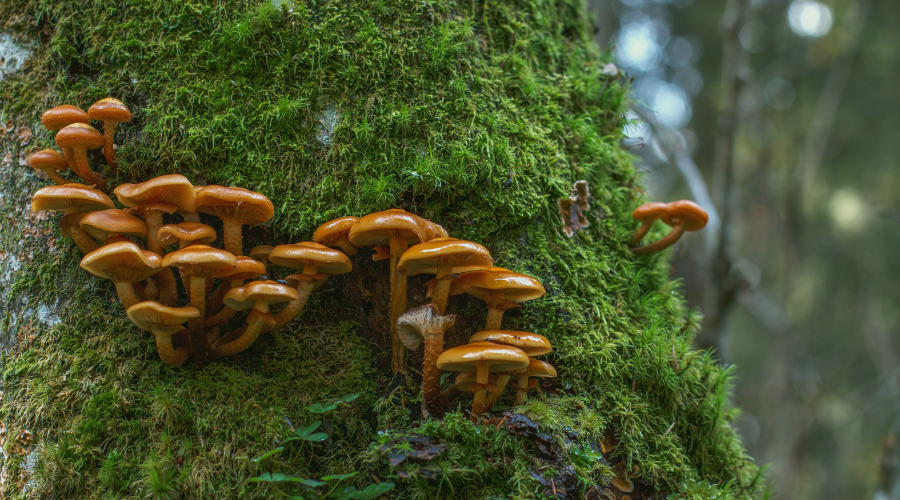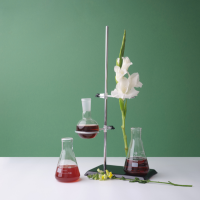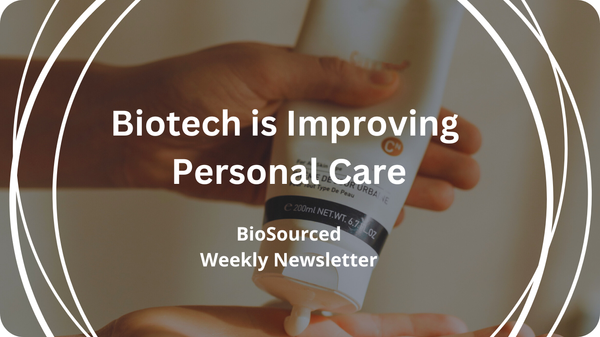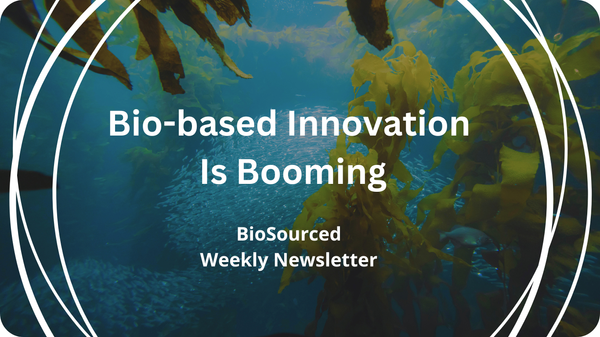Biobased Updates
This week, we delve into the exciting strides made by leading companies and emerging players dedicated to advancing biobased materials and processes.

[Weekly Snapshot: Key Developments from the Bioeconomy]
Explore the latest bioeconomy innovations across diverse sectors, from sustainable packaging to eco-friendly sporting goods. This week, we delve into the exciting strides made by leading companies and emerging players dedicated to advancing biobased materials and processes.
In this issue:
- RadiciGroup launches bio-based nylon resins for automotive and water applications, reducing CO2 emissions.
- Evolved by Nature’s sustainable leather finish offers a PFAS-free, biodegradable solution derived from silkworm cocoons.
- Poland’s bioeconomy expands with growth in biopharmaceuticals, biotech, and the biogas sector.
- BIG’s mycelium-based 3D-printed structure showcases sustainable architecture potential.
- Charlie Cadin’s beeswax resin for surfboards provides an eco-friendly alternative to toxic board materials.
- 2M’s seaweed-based packaging material brings fully compostable, circular solutions to personal care.
RESINS
RadiciGroup Introduces Biobased Nylon Resins
RadiciGroup is set to debut its BIONSIDE line at Fakuma 2024, a new portfolio of bio-based engineering polymers developed from renewable sources. A standout product in this range, Radilon® PA610, is crafted from castor oil plant seeds and significantly reduces CO2 emissions. These biobased nylons provide improved technical performance tailored for applications in automotive and water management sectors, reflecting RadiciGroup’s commitment to accelerating sustainable solutions across industries.
Read more about RadiciGroup's launch
TEXTILES (LEATHER)
Advancing Natural Leather Sustainability with Activated Silk™ L1
Evolved by Nature is revolutionizing leather finishes with its Activated Silk™ L1 system, a PFAS-free, biodegradable alternative derived from upcycled silkworm cocoons. This innovative biofinishing solution addresses the leather industry’s need for sustainable options while preserving material quality. The technology not only offers an eco-conscious approach to leather processing but also minimizes environmental impact by eliminating toxic chemicals common in traditional leather finishing.
Explore the future of sustainable leather
THE BIOECONOMY
Poland’s Emerging Bioeconomy: A Hub for Sustainable Innovation
Poland’s bioeconomy is on a fast growth trajectory, supported by a robust GDP, infrastructure investments, and a skilled workforce. While food and agriculture remain dominant, industries like biopharmaceuticals and industrial biotech are gaining traction. Companies such as MakeGrowLab and Ecobean are advancing sustainable materials, while the biogas sector is poised for significant growth with new policy backing. Challenges persist, especially in bioplastics recycling, but the expansion of Poland’s bioeconomy signals a promising future for biobased innovation.
DESIGN AND CONSTRUCTION
BIG’s Mycelium Structure “I AM MSHRM” Showcases Sustainable Architecture
The Danish architecture firm Bjarke Ingels Group (BIG) unveiled an innovative mycelium-based structure, “I AM MSHRM,” at a recent manufacturing summit. Created in collaboration with Danish AM Hub, MDT A/S, and Naturpladen, this 3D-printed structure integrates recycled plastic with mycelium for modular construction, reducing the need for traditional scaffolding and minimizing waste. BIG’s project exemplifies the potential of biobased materials in architecture, offering a scalable, low-carbon solution for eco-friendly construction.
Learn more about the I AM MSHRM project
SUSTAINABLE SPORTING GOODS
Eco-Friendly Surfboards: Beeswax Resin for a Greener Ride
In the Channel Islands, surfer and shaper Charlie Cadin has pioneered a sustainable alternative for surfboard resin. Using beeswax, a byproduct of the honey industry, Cadin’s resin formulation is fully biobased, biodegradable, and avoids the toxic chemicals found in conventional surfboard materials. Beeswax’s inherent waterproofing and durability make it ideal for surfboards, enabling surfers to reduce their environmental impact without compromising performance.
Discover more about beeswax resin in surfboards
PACKAGING
2M Sustainable Packaging Technologies Innovates with Seaweed-Based Packaging
Awarded an Innovate UK SMART Grant, 2M Sustainable Packaging Technologies, in partnership with WMG at the University of Warwick, is advancing circular solutions in personal care packaging with FlexSea. This biomaterial, derived from red seaweed, is fully recyclable, compostable, and engineered to biodegrade within weeks without harmful residues. FlexSea’s production process is notably green, requiring no harsh chemicals or high temperatures, showcasing the company’s dedication to pioneering sustainable alternatives for single-use plastics.
Read about the grant and its impact on sustainable packaging
Thank you for reading! Stay updated on the latest bioeconomy developments with us each week as we bring you insights into the innovations shaping a more sustainable future.





